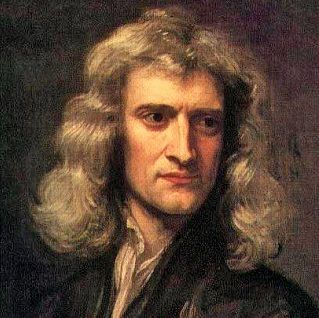Thanks to Isaac Newton

In particular, it appeared as though there existed one big continuous three-dimensional space, and one dimension of absolute time in which all events played themselves out on a cause-effect basis. If I could know where a certain thing is now, how fast and in what direction it’s moving, and the forces that are acting on it, I could tell you where it was going to be in 10 minutes, or in 10 million years. Moreover, I could tell you where it’s been in the past, raising questions like: So how long has all this stuff been here? Was there a beginning of time? If so, where did matter come from initially? How is it possible that human beings really have free will, if the stuff inside our heads follows the same rules as billiard balls on a pool table?
The idea of absolute space and time took a turn for the worse in the early 20th Century at the hands of Albert Einstein and was further savaged by the developers of quantum mechanics a few decades later. But Newton’s laws still hold up very well to describe events involving the objects that form the universe of material that is familiar to humankind here on Earth: things that are neither infinitesimally small, nor gallactically large, nor moving close to the speed of light.
Perhaps most remarkably, Newton started us on a path to challenge our belief systems and look for big, broad explanations. The notion that the same force that causes the planets to orbit the sun also causes apples to fall out of trees set us on a course to nail down the natural laws that govern all things, which, if it has any chance of success, requires us to continue to think big. But while it doesn’t appear that we’re right around the corner from having all this in the can, we need to thank Newton for putting us on the road in the first place.
